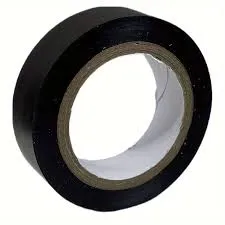The Versatility of Automotive Fabric Tape
In the ever-evolving automotive industry, innovation remains at the forefront of vehicle design and manufacturing. One of the often-overlooked yet essential components in this landscape is automotive fabric tape. This specialized adhesive tape is not just a simple accessory; it plays a crucial role in enhancing the performance, durability, and aesthetics of vehicles.
Automotive fabric tape is made from a variety of materials, including cloth, fiberglass, and polyester, which makes it incredibly versatile. Its primary function is to provide a strong, flexible bond that can withstand extreme conditions. Whether it’s high temperatures under the hood or exposure to moisture, this tape is designed to endure the rigors of automotive environments.
One of the key features of automotive fabric tape is its excellent adhesive properties. Unlike standard adhesives that may degrade over time, automotive fabric tape maintains its integrity much longer. This is particularly important for applications such as securing wiring harnesses, reinforcing seams, or insulating surfaces. For example, it is commonly used in the assembly of dashboards, trims, and headliners where a robust yet discreet solution is needed.
automotive fabric tape

In addition to its functional benefits, automotive fabric tape also contributes to noise reduction within vehicles. It acts as an efficient damping material that minimizes vibrations and absorbs sound, leading to a quieter ride. Consumers today increasingly prioritize comfort and noise control, making this attribute an essential consideration in modern automotive design.
Furthermore, this tape is available in various colors and textures, allowing for aesthetic customization. From sleek black finishes to vibrant hues, manufacturers can choose options that complement the overall design of the vehicle. This versatility extends beyond function; it enables automobile manufacturers to create visually appealing interiors and exteriors.
Sustainability is also becoming a critical factor in automotive manufacturing, and many companies are starting to produce eco-friendly versions of fabric tape. These tapes, made from recycled or biodegradable materials, appeal to environmentally conscious consumers, aligning with the industry's push towards greener solutions.
In conclusion, automotive fabric tape is a small but mighty tool in the automotive sector. Its durability, versatility, and aesthetic appeal make it an indispensable resource for manufacturers aiming to enhance their vehicles' performance and design. As the automotive industry continues to innovate, the importance of such foundational materials will only grow.
-
XIANGFAN Rubber Tape-Ultimate Solutions for All Your Insulation NeedsNewsJun.24,2025
-
XIANGFAN Rubber Tape-Protection for Industrial and Residential ApplicationsNewsJun.24,2025
-
XIANGFAN Rubber Tape: Superior Safety and Sealing for Demanding EnvironmentsNewsJun.24,2025
-
XIANGFAN Rubber Tape: Reliable Solutions for Every Electrical ChallengeNewsJun.24,2025
-
XIANGFAN Electrical & Industrial Tape: Powering Reliability Across IndustriesNewsJun.24,2025
-
XIANGFAN Electrical & Industrial Tape: Excellence in Every ApplicationNewsJun.24,2025
